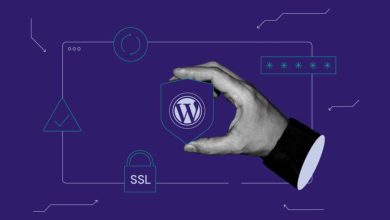5 Ways ERP Software Benefits the Health Care Industry

ERP (Enterprise Resource Planning) software has completely changed how firms work in various industries. The health care industry is one where ERP installation has yielded significant benefits. ERP systems offer all-inclusive solutions that automate and streamline vital procedures, increasing productivity and enhancing patient care. In this post, we’ll look at five essential ways that ERP software helps the healthcare sector by streamlining processes and promoting successful outcomes.
5 Ways ERP Software Benefits Health Care Industry
An ERP software is extensively utilized by various companies in the healthcare industry. For example, a pharmaceutical company can benefit a lot by utilizing a Pharmaceutical ERP Software. In this post we will explore five key ways in which the healthcare industry benefits from implementing ERP software.
1. Streamlined Supply Chain Management
Management of the supply chain that is both efficient and effective is necessary for the health care business to run normally. By automating activities like inventory management, procurement, and distribution, ERP software is essential in reducing inefficiencies along the supply chain. ERP software for the pharmaceutical industry enables health care organizations to manage appropriate inventory levels, hence decreasing wastage and eliminating shortages. This is made possible by providing real-time visibility into stock levels.
In addition, it makes efficient vendor management much easier, ensuring that prescriptions and medical supplies are delivered on time. ERP software helps health care institutions provide uninterrupted patient services while reducing costs. This is accomplished by streamlining the supply chain.
2. Enhanced Patient Management
The administration of patients is a complicated and multi-faceted component of healthcare delivery. By centralizing data and automating administrative procedures, ERP software makes the process of patient administration much simpler. There is no longer a need for health care workers to keep records manually, due to the implementation of unified electronic health record (EHR) systems.
As a result, the likelihood of making mistakes has been significantly reduced. This streamlined method allows medical personnel to make better informed judgments and give patients more individualized treatment. In addition, ERP software makes it easier to schedule appointments, process invoicing, and handle insurance claims, all of which contribute to better patient experiences and higher operational efficiency.
3. Efficient Financial Management
Management of efficient and effective finances is necessary for the continuation and expansion of health care organizations. The accounting, billing, and billing processes can all be automated with the help of strong financial management modules offered by ERP software. ERP systems can provide real-time insights into a company’s income, expenses, and profitability by integrating financial data from various departments.
This helps administrators of health care facilities to make educated financial decisions and locate areas in which costs can be optimized. When firms can access precise and current financial information, they can streamline revenue cycle management, assure compliance with regulatory requirements, and improve their overall financial performance.
4. Streamlined Workflow and Communication
For effective collaboration among health care providers, an efficient workflow and smooth communication are two of the most important factors. ERP software enables streamlined workflow management by automating task assignments and monitoring progress while giving real-time status updates. The medical team can more effectively collaborate on treatment plans, discuss individual patient cases, and share information when they can access centralized communication channels. This improves the coordination between the departments and the quality and effectiveness of the care provided to patients. In addition, ERP software enables communication that is both private and HIPAA-compliant. This protects the privacy of patient information and maintains its confidentiality.
5. Data-Driven Decision Making
Harnessing information is essential for promoting evidence-based decision making in the health care sector in the age of big data. The enterprise resource planning software collects, combines, and analyzes massive volumes of data originating from various sources, including patient information, financial transactions, and operational measures. Health care companies can extract meaningful insights from this data using sophisticated analytics and reporting technologies. These organizations can then identify patterns, trends, and chances for improvement. Health care practitioners can improve treatment outcomes, optimize resource allocation, and proactively identify potential hazards or difficulties when they utilize decision making that is driven by data.
Conclusion
ERP software has completely changed how businesses run and provide care in the health care sector. ERP systems provide many advantages, from streamlining supply chain management to improving patient management, supporting effective financial management, enabling streamlined workflow and communication, and empowering data-driven decision making. By implementing pharmaceutical ERP software, health care firms can increase operational effectiveness, cut costs, and improve patient outcomes. Adopting ERP software is becoming more and more essential for businesses looking to compete in the competitive health care market as the sector continues to develop.




